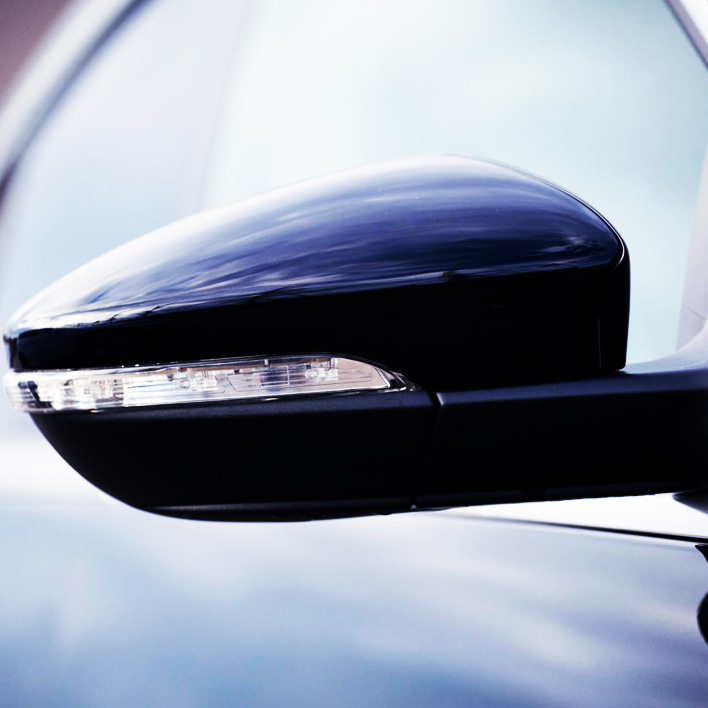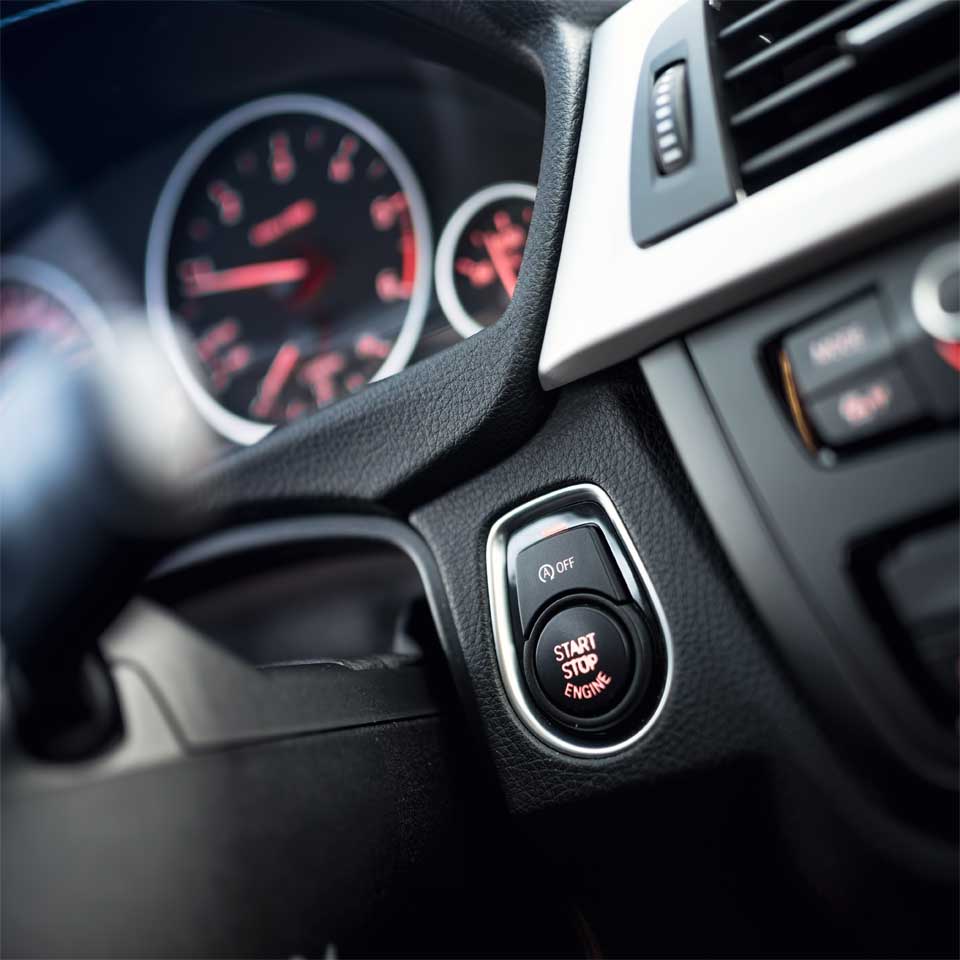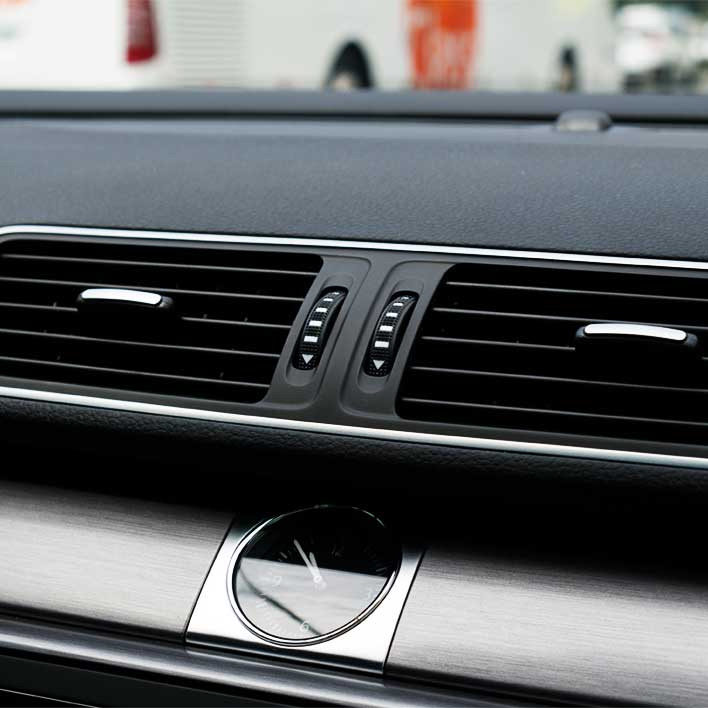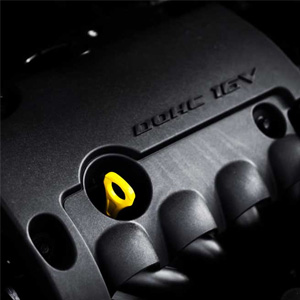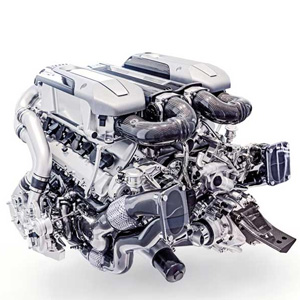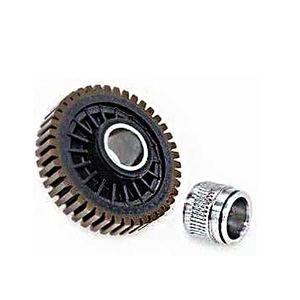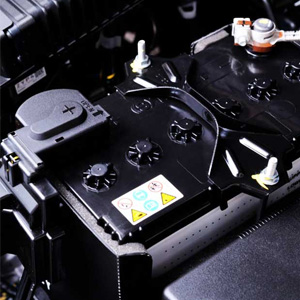Portfolio of a Fully Integrated Polyamide Manufacturer
Polyamides and their outstanding properties are a popular material for lightweight applications – especially in the automotive industry. With LEONA™, Asahi Kasei offers a broad range of polyamide types for lightweight and UV-resistant applications.
When the first polyamide (PA) came onto the market, it became an instant success – in the shape of nylon stockings! But even today, more than 80 years later, the engineering plastic is still in great demand, not only in the textile sector. Polyamides are processed into fibers in very large quantities but are also among the most important engineering thermoplastics. They have traditionally been a go-to material for applications and components in a rigorous and challenging environment. This is certainly due to their increased rigidity, toughness, tensile strength, superior thermal stability and enhanced ignition resistance.
Asahi Kasei has been active on the market with LEONA™ since 1975. As one of only four fully integrated polyamide manufacturers worldwide the company is able to produce PA 66 completely from monomer to compound and supplies the market independently from external factors.
Generally, LEONA™ is widely used in the production of electrical, electronic, architectural, structural, mechanical and functional parts and components as well as business equipment. Asahi Kasei’s LEONA™ family not only has the same characteristics as standard polyamides, but they also contain additional key attributes:
Due to its strength, workability and its heat, oil, as well as abrasion resistance, the LEONA™ PA66 material, is one of the most important engineering plastics in the world.
The compounding technologies of the company allow for global quality with local production and the special polymer technology is what makes the material itself unique.
Working alongside and within the automotive industry, Asahi Kasei has gained a lot of knowledge on new technologies. CAE (“Computer Aided Engineering”), for instance, is one of these key technologies, which has allowed Asahi Kasei to develop light weight components for vehicles by replacing various metal parts – in cooperation with its partners. In that sense, CAE is an excellent tool to re-design “existing” metal components in such way so that it can be converted into a LEONA™ part, thereby replacing the metal to realize light weight.
As an example of successful CAE activities, Asahi Kasei has worked with Mazda Motor Corporation on lightweight of the pedal bracket made of LEONA™, which won the Altair Enlighten Award in 2018 by outstanding topology optimization.
In this context, the Asahi Kasei Europe R&D Center established in October 2017 plays a key role. Together with German universities and research institutes, the facility provides the necessary equipment and capacities for developing new products for the European market. A major focus is on CAE, which, among other things, helped in the development of the LEONA™ 90G series.
High Strength and Brilliant Surfaces
A survey from December 2020 conducted by Asahi Kasei Europe and Cologne-based market research company SKOPOS interviewing a total of 2,000 car users in Germany, USA, China and Japan on their preferences towards future automotive interior showed, that the automotive interior is on its way to become a major element influencing buying decisions of car users.
Within the interior, surface materials are becoming a main differentiator. They significantly determine how he/she perceives the interior of the vehicle – and even more important: the driving experience. This is also reflected in the results of the survey: For 40% of all respondents in Germany, high-quality premium surfaces are important – even more so for users in China (68.7%) and the USA (50.2%).
The LEONA™ 90G series is a semi-aromatic glass-fiber reinforced PA66/6I material with excellent surface appearance and high mechanical strength. Though filled with 60 percent of glass fiber, its Class A surface makes it possible to omit the whole painting process, thereby saving time and costs. Additionally, LEONA™ 90G brings the enormous advantage during the injection process of being able to mold at a lower mold temperature than is the case with competitors’ materials.
Major applications for the grades include door mirror stays, door handle, roof rails and air vent blades. The VW Passat can be named as a more concrete application example from the automotive sector – its air vent blades, made of LEONA™ 90G, have been specially developed for the interior design of the car. In that sense, these air vent blades are particularly thin and extra-long since the air ventilation system extends through the entire dashboard.
To further address the changing needs towards premium-looking automotive interior surfaces, Asahi Kasei is introducing the LEONA™ SG series, a new semi-aromatic polyamide to the European market. It is available in grades reinforced with 40%, 50% and 60% glass fiber.
Even with a high glass fiber content, it features a superior surface quality and gloss at shorter cycle times. This can be achieved without additional surface treatment or additional coating. Furthermore, the material offers an excellent inherent mechanical strength even under moisture. In a conditioned state the 50% glass fiber filled SG105 shows a clear superiority compared to standard and other semi-aromatic polyamides: While standard PA 66 shows a deterioration of 30% in tensile modulus compared to its dry state, SG105 maintains its performance. In addition, SG105 shows an 8% better flexural strength than comparable semi-aromatic polyamides (25% better compared to standard PA 66).
For visible automotive interior parts there is no more need of compromising on neither surface appearance nor mechanical properties. Application fields inside the automotive include venting blades, armrests, covers or door handles.
Compared to similar materials, the LEONA™ SG series contributes to a cost- and energy-saving production process. In addition, the high flowability enables thin walled constructions and opens up new freedom in design in addition to possibilities in material savings. The material also demonstrates these advantages in other areas, for example as a replacement for metal die casting (aluminum, ZAMAK, etc.) in construction, industrial or furniture parts.
Strong Performance for Automotive Applications
Similarly well suited for automotive applications is the LEONA™ 14G series. It is widely used for cylinder head covers, torque rods, engine mounts and knocking sensor housings and enjoys a high reputation among the customers. The grades are made of standard heat stabilized glass-fiber reinforced PA66 material with excellent high strength, fatigue strength, creep resistance and heat aging resistance. The 14G range is the most standard material line-up within the LEONA™ family and the reinforcement ranges between 30 and 50 percent.
Within this series, Asahi Kasei has newly developed – based on the advanced market requirements – a super high-flow grade, “EG series”, to make thinner wall thickness possible in, for example, cylinder head cover applications without sacrificing heat aging resistance.
Newly Developed Low Friction Grades
LEONA™ 1442 and LEONA™ 1542 are Asahi Kasei’s most recently developed low friction grades. These medium viscosity and high viscosity grades, both a PA66/PTFE blend material, have a significantly improved low friction coefficient and wear resistance. Asahi Kasei’s special compounding technology actualizes uniform micro dispersion, thereby generating excellent performance. This series has been developed for chain guides and various gear or other sliding applications. Within this series, Asahi Kasei has newly developed – based on the advanced market requirements – a super high-flow grade, “EG series”, to make thinner wall thickness possible in, for example, cylinder head cover applications without sacrificing heat aging resistance.
Unfilled Series
This series is made of standard PA66, available from medium viscosity – LEONA™ 1300 – over high viscosity – LEONA™ 1500 – to ultra-high viscosity – LEONA™ 1700. All of these unfilled grades are also available in a heat stabilized and in a flame retardant version. Existing applications can be found in the field of chain guides and gearing.
Strong against Heat and Water
For applications that are exposed to strong heat, Asahi Kasei has specially developed its LEONA Durelia™ series. The glass-fiber reinforced PA66 material with improved long-term heat resistance can be used in the high temperature range of 150 °C to 230 °C. Engine downsizing with turbo charger requires higher heat resistance. For these conditions, Asahi Kasei offers the best compounding solution. Major applications include turbo ducts, turbo cooling pipes, and intercooler tanks.
The LEONA™ 53G series, on the other hand, is applicable for special injection processes using water, such as WIT (“Water Injection Technology”). It is made of glass-fiber reinforced PA66+PA612 material with low water absorption, hydrolysis resistance and calcium chloride resistance. Major applications include radiator tanks, cooling pipes, and thermos valves.
Glass-fiber reinforced PA610 containing plant-derived components with low water absorption, hydrolysis resistance and calcium chlorides resistance – known as LEONA™ BG series – also belongs to the product range. Major applications include radiator tanks and oil pumps. During almost 45 years on the market, Asahi Kasei has steadily developed and optimized the LEONA™ product range. Particularly with regard to the automotive sector, the company sees even greater potential for the future.
